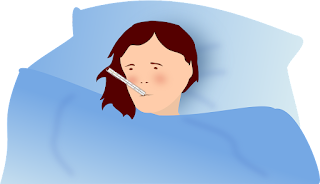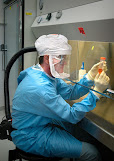Malaria: All you need to know
Malaria is a vector-borne infection that is caused by the parasites of plasmodium genus, which are protozoa. The vector for malaria is the female Anopheles mosquito. This mosquito gets infected with the Plasmodium parasite and in turn when it feeds on human blood by biting, it transmits the infection to the humans. With even a very little amount of its blood being injected into the humans while it has blood-meals, the female anopheles mosquito is capable of transmitting too many microbes into the human's blood.
Malaria can be a serious parasite infection, sometimes it can cause some severe life-threatening complications. It is a common disease with endemic outbreaks where there are more mosquitoes and lack of sanitation. It is a disease that is characterised by high grade fever with chills and causes general weakness of the body.
It can be diagnosed and treated but the recurrence of the disease is possible to happen. There are no vaccines for malaria. Prevention is the best approach to stay safe from malaria.
The malaria prevention measures are mainly focused at controlling the mosquito breeding places and preventing the mosquito bites.
What are the different types of malaria parasites?
Types of Malarial parasites:
There are four types of malarial parasites that can cause malaria:
- Plasmodium falciparum
- Plasmodium vivax
- Palsmodium ovale
- Plasmodium malariae
Another species of malaria parasite known is Plasmodium knowlesi, it is a zoonotic malaria that can spread from animals to humans. Macaques are the carriers of this type of plasmodium. However it is commonly seen only in some regions such as Southeast Asia.
Plasmodium falciparum is the most common type of parasite that causes malaria.
Plasmodium vivax is more fatal disease causing malarial parasite.
Other types are not so common.
What are the symptoms of Malaria?
Malaria infection can start within the body from day 10 of the bite to few weeks. Most people start experiencing the symptoms of malaria within the week.
- Fever with chills. The person experiences sudden shaking chills called rigor.
- Headache
- Muscle aches and weakness
- Feeling of fatigue or tiredness
- Nausea or Vomiting
- Diarrhea accompanied by abdominal pain
- Sweating and increased breath rate
- General discomfort and feeling of sickness
Other symptoms include:
You can develop anemia due to the destruction of the red blood cells.
The destruction of the red blood cells may also cause jaundice like symptoms.
If the symptoms are not treated promptly they can become more severe and damage the vital organs such as liver, kidney or brain.
What are the causes of Malaria?
Malaria is caused by the parasite, Plasmodium. The parasite enters our body when a female anopheles mosquito bites us. These mosquitoes are previously been carrying the parasites as aquired during their blood meal. Once the parasite mixes with the saliva of the mosquito it gets transmitted to us if it bites us anyhow. The sting of the mosquito injects the parasite into the blood vessels and thus the parasite reaches our red blood cells.
How is malaria transmitted to the humans?
The transmission cycle of malaria infection is as follows:
The female anopheles mosquito takes up the blood meal of an infected person->> this infects the mosquito->>the infected mosquito has malaria parasites in the saliva->> when this mosquito bites another healthy person, the parasites enter the peron's body due to the bite->>the parasites enter the circulation and reach the liver->> in liver, they grow and become active->> the parasites then enter the red blood cells and infect them->> this produces symptoms of the infection or malaria.
Malaria can be transmitted by following other ways:
- During blood transfusion if the infected blood is used.
- Use of syringes and needles infected with malaria parasites.
- Transplant of organs may also cause malaria, if the blood of the donor contains the parasites.
Is malaria a contagious illness?
The answer is no. Unlike flu or any other respiratory illness, malaria cannot spread through direct contact or from person-to-person.
If you have malaria and your caretaker sits next to you, it is safe as the parasites do not get transmitted by casual touch with hands.
It is also not spread by sexual contact.
Who are at more risk of having malaria?
- Any person can get malaria anytime during the life time.
- People living in endemic areas have higher risk of getting malaria. Malaria is however, more common to have recurrences to the same person where it has endemic prevalence during some seasons.
- Travelling to malaria-prone areas can also be a factor.
- If a mother is infected with malaria during delivery she can transmit the infection to the unborn baby through trans-placental route
- People receiving frequent blood transfusions are at increased risk of having malaria.
- People living under compromised sanitary conditions are at risk. Dirty places often become the breeding places of mosquitoes.
How can be malaria diagnosed?
Malaria can be diagnosed by the peripheral blood smear technique that effectively detects the malarial parasites in the blood. The other tests such as complete blood count help in understanding the levels of the red blood cells, white blood cells and platelets.
What is the treatment of malaria?
Malaria can be treated by the antimalarial medications prescribed by your doctor. See your doctor immediately if you notice any symptoms of malaria.
Early detection and treatment is the best approach to treat malaria effectively.
Late diagnosis and failure of treatment may cause serious or life threatening complications.
Your doctor may prescribe the medication to treat you symptomatically. This can reduce the symptoms of fever and fatigue.
The treatment at community level is given according to the guidelines designed specially by the health sector of the country to treat and prevent malaria.
Take your medications regularly as per the doctor's advice to get completely rid of the infection.
Can malaria be prevented?What are the preventive measures for control of malaria?
Malaria is a preventable disease. The following control measures can help you from getting malaria infection.
The main vector of malaria is the mosquito (See also- Dengue)
Controlling the vector is an essential part of malaria control measures.
Prophylactic chemotherapy with antimalarial drugs
Prevention of mosquito bites
- Use of full sleeved clothes and pajamas at night
- Use mosquito-repellents.
- Use mosquito nets over your bed at night
- Use over-the-counter creams available for skin application to prevent mosquito bite.
- Apply coconut oil on the exposed parts of body, especially the hands and legs before you go out.
Prevention of mosquito breeding places
- Improving the sanitation of the places and surroundings.
- Never let water to stagnate in puddles or tyres or any other object in your house, surrounding or terrace.
- Never leave the tanks uncovered. Clean the tanks periodically. The larvae of the mosquitoes grow in the water.
- biological water tanks with fishes that consume the mosquito larvae can reduce the mosquito population.
- Use of mosquito-killing powder or sprays.
- Keep the surrounding clean.
Prophylaxis for malaria before travel to malaria zones
- Seek the advice of your doctor before planning any travel to other countries where malaria is more pronounced.
- Take the medications before, during and after the travel as per your doctor or health care provider's advice or prescription.
- If you are pregnant make sure you avoid any such travel that can expose you to malaria risk..
- Get prompt treatment if you are pregnant and diagnosed with malaria. This may prevent the complications in your newborn baby.
Malaria is a vector-borne parasite infection caused by the bite of the female anopheles mosquito. Early diagnosis and prompt treatment can help prevent serious complications. Prevention and control of malaria can be done to reduce the incidences of the disease.
Note: This post is for informational and educational purpose only, It is not a substitute to any medical or professional advice or treatment. See your doctor in any case.




Comments